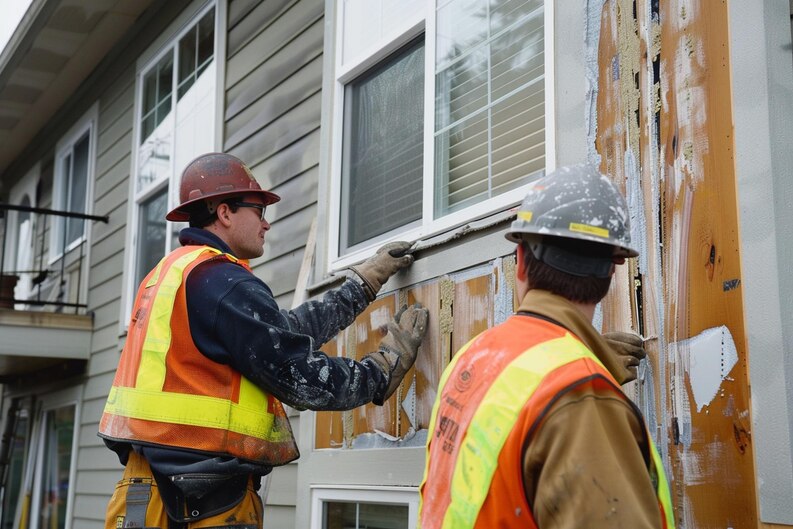Emergency repairs are a common issue in commercial property management. Issues like burst pipes, power outages, or HVAC failures need quick action. This ensures tenant safety, keeps the building in good shape, and lowers risks.
In this guide, we’ll cover everything about emergency repairs in commercial real estate property management. We’ll talk about planning, communication, choosing the right vendors, and using technology.
Why Emergency Preparedness Matters in Commercial Property Management
Emergencies in property management for commercial properties can harm your reputation and cause legal issues. A poor handling of an emergency can also affect the property’s long-term value.
Here are some reasons for having a good emergency plan:
- Tenant Safety: Issues like fire hazards, structural damage, and flooding are dangerous.
- Asset Protection: Quick action prevents extensive damage to the property.
- Regulatory Compliance: Emergency protocols are often required by law.
- Operational Continuity: Keeping operations running smoothly is key for tenants.
Common Types of Emergency Repairs in Commercial Properties
Knowing what’s an emergency is the first step in managing commercial property. Here are some common emergency issues:
- Burst water pipes
- HVAC system failure in extreme weather
- Electrical outages
- Gas leaks
- Roof collapses or severe leaks
- Fire or smoke damage
- Security breaches or broken locks/doors
If a repair makes the building unsafe or disrupts operations, it’s an emergency.
Step-by-Step: How to Handle Emergency Repairs Efficiently
1. Create an Emergency Response Plan
Every commercial property needs a detailed emergency response plan. This plan should include:
- Emergency contact list (vendors, emergency services, key tenants)
- Utility shut-off locations
- Evacuation procedures
- Designated roles for onsite staff
- Access to digital building layouts
This is essential for any commercial property management firms aiming for top performance.
2. Establish 24/7 Communication Channels
Emergencies happen anytime. Make sure tenants and staff can reach someone at any hour. Many commercial property management companies use:
- After-hours answering services
- Dedicated emergency phone lines
- Tenant portals
- Property management apps
Quick communication is vital for commercial property managers, more so in busy places like offices or retail.
3. Vet and Maintain a Network of Emergency Contractors
Don’t wait for an emergency to start looking for plumbers or electricians. Build good relationships with reliable contractors. They should be ready to help you 24/7.
Your list should include:
- Plumbers
- HVAC technicians
- Electricians
- Roofers
- Fire safety specialists
- Security personnel
Many commercial property management jobs need you to build these relationships. It’s part of your job.
4. Use Commercial Property Management Software
The best way to handle emergencies is with commercial property management software. These tools help by:
- Keeping all tenant communications in one place.
- Tracking maintenance requests in real time.
- Keeping records of repair costs and actions.
- Letting managers access information on their phones.
Top platforms include Yardi, Buildium, AppFolio, and MRI Software. They are key for modern commercial property management firms.
5. Assess and Document the Situation
When an emergency happens:
- Send your team to the site right away.
- Take photos and videos for insurance and legal reasons.
- Record any tenant complaints or safety issues.
- Secure the area to prevent more damage or injury.
This documentation is important for insurance claims. It also shows transparency with stakeholders, which is key for commercial property management companies managing many properties.
6. Communicate Transparently With Tenants
Being clear and proactive in your communication builds trust with tenants. Here’s what to share:
- The nature of the emergency
- The steps you’re taking to fix it
- When you think repairs will be done
- Any temporary solutions or business plans (if needed)
In places like London, where tenant expectations are high, being open is even more important.
7. Coordinate Repairs and Follow-Up
After the immediate danger is over:
- Book thorough repairs with your trusted vendors.
- Do a check-up after the repairs.
- Keep everyone updated.
- Ask for feedback from tenants.
Don’t forget the follow-up. It’s vital for keeping tenants happy and the property’s value in commercial real estate property management.
Legal Considerations for Emergency Repairs
As a commercial property manager, you must know your legal duties. These include:
- Landlord Responsibilities: Most leases say landlords must keep essential services working (like heating, water, power).
- Insurance Requirements: Keep detailed records for claims and to protect yourself.
- Building Codes & Permits: Make sure all repairs follow local rules.
If you’re in a big city like London, learn about local rules. Commercial property management in London often means more rules to follow.
Training Your Team for Emergency Preparedness
Emergency repairs need a team effort. Make sure your staff and contractors know:
- Emergency protocols
- Health & safety regulations
- Communication systems
- How to handle tenant crises
Many commercial property management jobs look for people with crisis management skills or certifications.
Preventing Future Emergencies: Proactive Property Management
You can’t stop emergencies completely, but you can lower the chance of them happening. Do this by:
- Regular inspections
- Preventative maintenance schedules
- Upgrading systems
- Teaching tenants
This is what makes a good managing of commercial property.
Final Thoughts: Be Prepared, Be Proactive
Emergency repairs in commercial properties are serious. But with a proactive approach, the right tools, and a ready team, you can reduce disruption. You can also protect your assets and improve tenant relationships.
In a world where time and reputation matter a lot, how you handle emergencies shows your success in commercial property management.
Whether you manage one site or many, knowing how to handle emergencies is key. It’s a skill that brings a lot of value.









